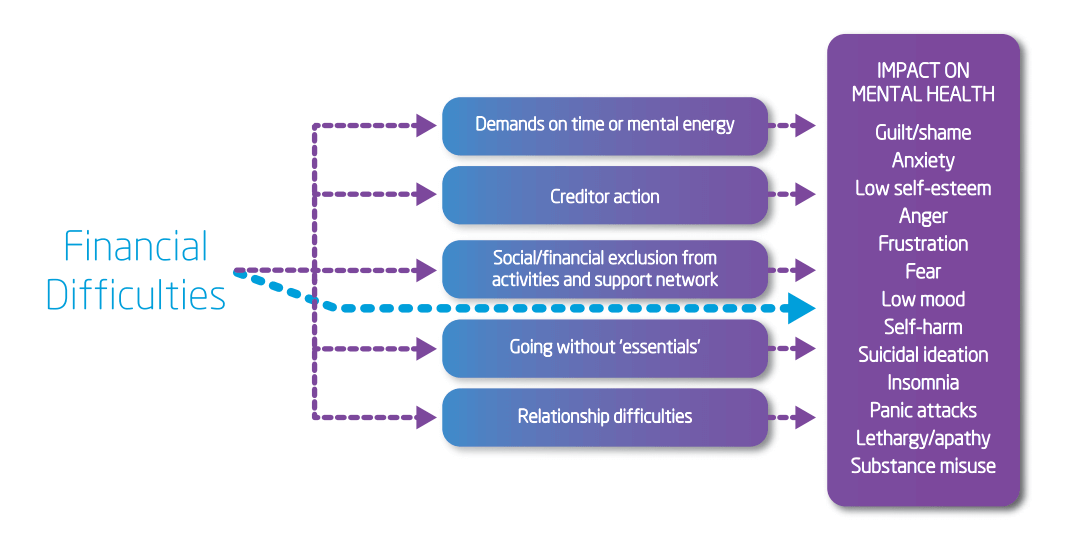
Cancer costs
The financial and emotional impact when your child has cancer
Learning your child has cancer has been described as the scariest rollercoaster ride you will ever go on. The ups and downs of surgery, chemotherapy and radiotherapy are hard enough but parents and young people often talk to us about the other pressures they face – namely the financial and emotional impact of cancer on their lives.
A child being diagnosed with cancer can be many parents’ introduction to the vicious cycle of money and mental health problems, their route into the complex pathways mapped out below by Money and Mental Health. That may be through stress and anxiety making it harder to manage money or, as our research out today explores, through increased costs leading to financial difficulty which ultimately takes its toll on mental health.


Spiralling costs
The financial costs start immediately from the point of diagnosis as treatment starts, travel and food costs mount up, with income often going down as jobs are left or unpaid leave taken. Our new research found that parents of children with cancer faced on average an additional cost of £600 per month while their child was being treated.
It’s a huge additional financial burden at a time when your income may also have gone down. Over 60% of parents we spoke to also got into debt during their child’s cancer treatment, 17% of these owing more than £5,000.
It will be no surprise that as a result of these intense pressures the majority of parents found that managing their finances during this time caused additional stress and anxiety, during what is already a disorientating and challenging time for the whole family. We already know that supporting a family while your child has cancer can have an impact on parents’ mental health – when you add in the anxiety of dealing with financial pressures as well it could create the perfect storm for lasting damage to emotional wellbeing and mental health.
“The cost of having to give up work, drive to hospital, buy all your meals on the go from canteens or cafes, and just centre your life around medical treatments is a huge burden. But I would say the emotional cost is the worst…we still don’t know when it’ll end. We may need to move house to a home with no stairs because our son is very immobile now. The uncertainty of our future and his is very hard to live with.” – Parent of a child with cancer.
Barriers to support
Alongside the anxiety that managing their finances causes them, parents and young cancer patients we talked to were also anxious about the process of applying for benefits such as Disability Living Allowance and Personal Independence Payments.
I can’t remember how long we waited to find out, that period is a blur. It was extremely stressful. I found the forms too long, complicated and like a hoop to jump through. My son was very ill and I just didn’t have the clarity for it…you should just be able to write the diagnosis and get the money automatically. It feels like you don’t want you to apply.” – Parent of a child with cancer.
What needs to change
CLIC Sargent helps families every day with our financial grants for all families, our social workers and our Homes from Home where families can stay for free while their child is having treatment. But we think that the Government, NHS and organisations like banks and energy companies can do more to help families who are struggling. We are currently focusing on how banks can support their customers who may be struggling to pay their bills and dealing with the additional anxiety and stress of their child having treatment for cancer.
Find out more
- CLIC Sargent is the UK’s leading cancer charity for children and young people, and their families. They provide emotional, practical, financial and clinical support to help families cope with cancer and get the most out of life. Over the last year CLIC Sargent supported over 7,000 young cancer patients and their families.
- You can support the #Cancercosts campaign and find out more here.
- You can read more about the relationship between money and mental health problems here.
